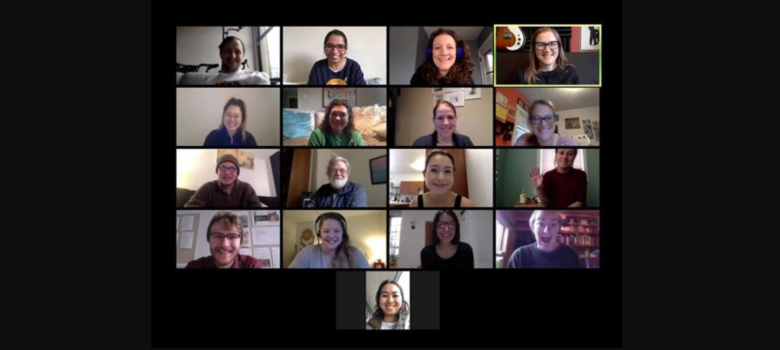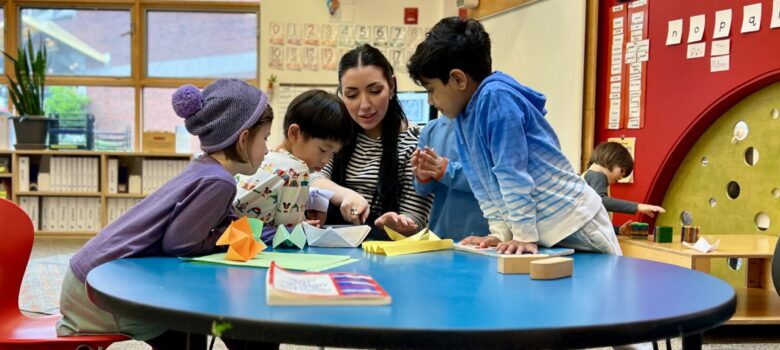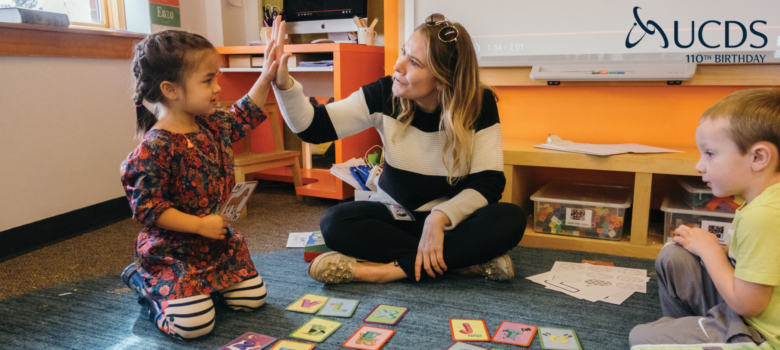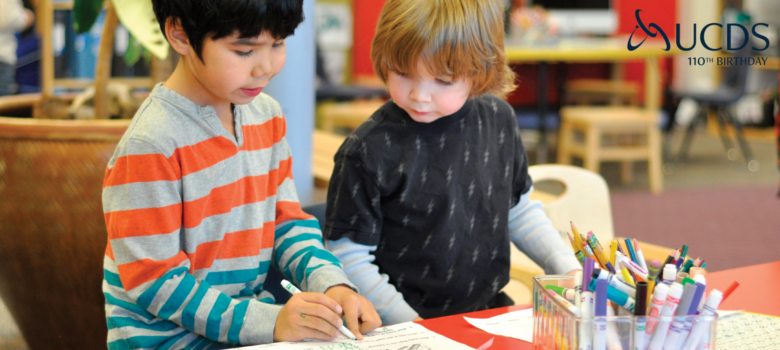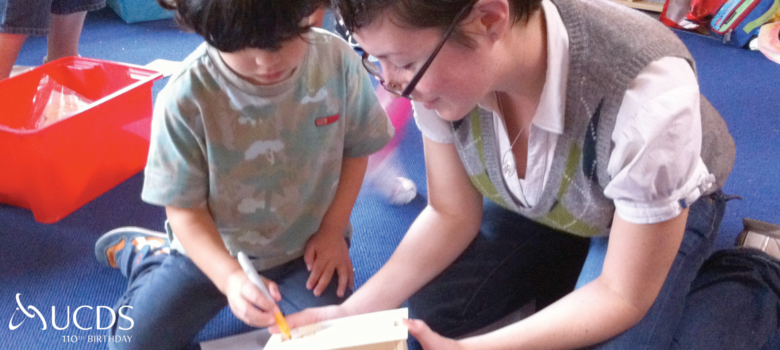By Abby Sandberg, Ph.D. – Learning Specialist and Division Head
If you’ve spent any amount of time talking to a UCDS educator, there’s a good chance that you’ve heard the term, “mindset,” come up in conversation. The idea, born from Carol Dweck, Ph.D. at Stanford University posits that people fall into two categories: those with a “fixed” mindset, and those with a “growth” mindset. Those with a fixed mindset attribute failures or setbacks to some permanent unchangeable defect (e.g., “I’m stupid,” “Nothing ever works out for me,”) and their successes to innate locked-in characteristics (e.g., “I’m smart,” “I’m good at math.”) Those with a growth mindset consider their abilities and effort to be dynamic and shifting. They attribute both success and failure as something they have control over, (or at the very least, changeable), and not something that is tied to an inherent attribute of who they are. People who lean towards a fixed mindset are often at risk of trying to maintain their image of who they are. There is a lot of stress that comes with constantly trying to live up to the expectation and “prove” the statement, “I’m a smart person.” People with a growth mindset, on the other hand, are less likely to find themselves threatened by the thought of failure, as their self-image as “someone who tries hard” isn’t threatened by similar instances of failure.
As you might expect, Dr. Dweck posits that individuals who adopt a growth mindset are better suited to deal with adversity in a positive way. She outlined this concept in her book, “Mindset: The New Psychology of Success,” in 2007, which has given the idea plenty of time to percolate and reach maturity in a variety of life scenarios. The fact that it keeps finding its way into educational conversations provides evidence that this simple notion can provide an helpful lens when navigating challenging situations.
So, how does this apply to the era of Distance Learning? Right now, everyone has been thrown into a situation where we are learning new things in the face of many obstacles. Failure is inevitable. It’s the story you tell yourself about the failure that will either help or hinder your ability to cope. Whether you are a parent, teacher, or student, you are now constantly adapting to a new way to go to school. It’s the perfect scenario for dysfunctional mindsets to raise their heads and get in the way of effective problem solving. Right now, more than ever, we must be gentle with ourselves as we learn new systems, acquire new knowledge, and apply it to a new model of education.
As educators, when our students hit obstacles in their learning, we cannot swiftly resort to, “I must be a bad teacher.” Instead, we have to reframe the situation and realize the many factors that students and families are up against when it comes to distance learning. Keeping a growth mindset of “I’m a teacher who works thoughtfully to problem solve difficult situations,” will keep us solution-focused and able to tackle learning obstacles head on.
As parents, when our children struggle with finding a new way to engage with school online, or have difficulty learning a concept remotely, we must not attribute their roadblocks to an inability to be a good parent. We must stay anchored with a growth mindset of “This is tricky and I’ve helped my child through tricky things before.” Finding ways to stay empowered and to identify what tools and resources are at our disposal is important. And, sometimes, the ability to “call it quits” from a day of online learning is the best tool in your toolbox. Identifying this particular tool as what your child needs does not mean you failed as a parent, it means you recognized what your child’s mental health required and you acted accordingly.
For students, keeping a growth mindset is of utmost importance. A young mind is most at risk for developing a fixed mindset when thrown into Distance Learning. Students who once thrived academically in the classroom may now find learning through a screen much more difficult. They may swiftly attribute school struggles to the idea that “I’m stupid,” or “I’m no good at school.” As adults, it is imperative we support a positive internal narrative in students. We must help them recognize how school has changed and empower them to identify concrete ways they can take control over their learning. One of the most powerful ways to support this thinking is to make our own growth-mindset internal dialogue visible to students. Whether you are a teacher or parent, modeling your positive self talk to children gives them a roadmap of how to navigate when they, too, will be faced with inevitable struggles.
While maintaining a growth mindset is certainly a tool that serves us well during Distance Learning, it is also a powerful framework as we tackle other unexpected and challenging obstacles in life. Now is the perfect time for us to practice and refine this approach.

